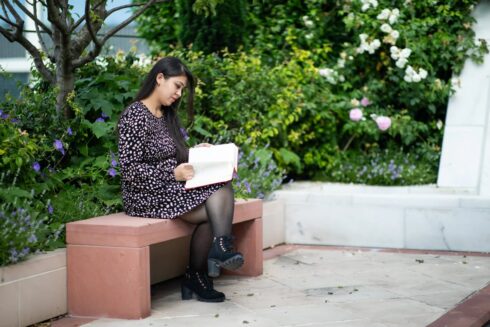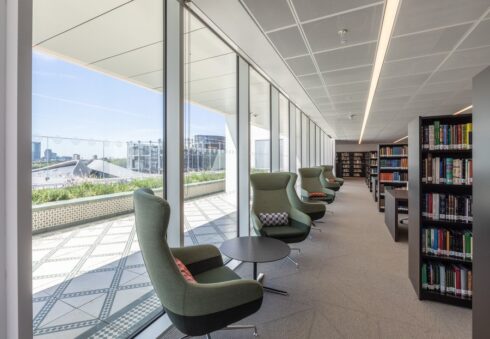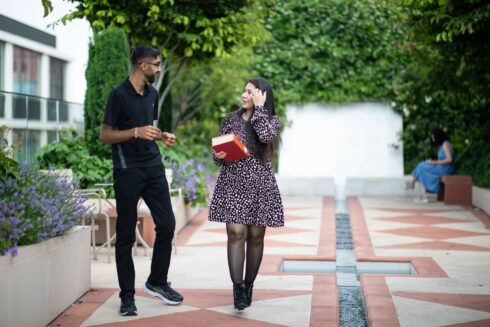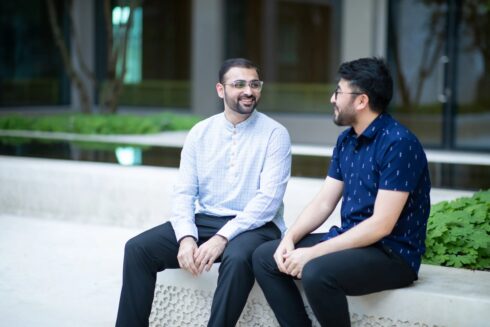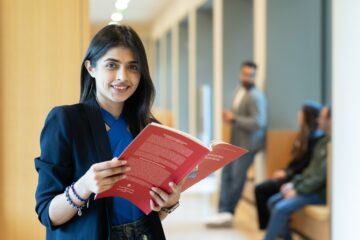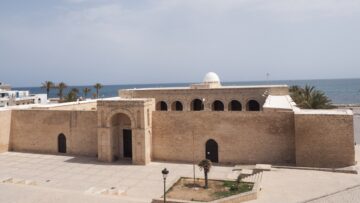Graduate Programme in Islamic Studies and Humanities
-
Status
Open -
Location
London -
Apply by
12 Jan 2026
Pre-sessionals
Students arrive in London to begin inductions and pre-sessionals in the second half of August, for around four weeks, ahead of the first term of MA study which commences in mid-September. Pre-sessionals introduce key skills and ways of thinking in the Humanities and Social Sciences, combined with practical orientations to life in London and at IIS.
Before arrival, many students take part in online preparation courses between April and August, depending on needs identified by IIS’ Academic Skills Support Team.
Two-year MA in Islamic Studies and Humanities
This programme is designed and delivered by IIS, and validated for the MA award by SOAS University of London.
- Year 1 lays the foundation with regard to knowledge and approach.
- Year 2 confronts broader thematic subjects and particular attention is devoted to cultivating research skills, culminating in a 10,000-word dissertation.
- Language training in Arabic or Persian continues throughout the two years. All students take Arabic unless they are already proficient, in which case they study Persian.
The programme is highly intensive. A typical week involves 9 hours of lectures and seminar discussions for subject modules; 6 or 7 hours of language classes; and 30 hours of independent study. Taught modules are delivered over three 12-week terms each year, following a prescribed curriculum.
Enrichment programming
The Field Research Project is an integral part of the programme which can also serve as a basis for continued study or career development. Students will conduct research during the summer of their second year and produce an original dissertation.*
A Research Supervisor is allocated to each student, to guide them in planning, preparing, conducting and writing up the dissertation. A year-long module in Research Design and Methods provides students with the tools to plan and conduct an empirical study. During this preparatory module, students will submit a project proposal for their field research, and approved projects will receive modest funding to contribute to the cost of travel to and from the place of research and other project-related expenses.
* It is the students’ responsibility to obtain a Visa for all excursions abroad. In the event of travel restrictions due to unforeseen circumstances including but not limited to a global pandemic such as COVID-19, alternative arrangements will be made to take place in the UK or in an online environment. In light of the Covid-19 pandemic, the field research component may need to be converted into a desk-based research, if field work is no longer feasible.
GPISH students are taken on a field trip to a Mediterranean country in Year 2.* The trip is focused on visits to Muslim architectural monuments of the Islamic ‘West’. The field trip also allows students to witness the contemporary use of the architectural sites, developing their visual literacy and contributing to learning about the formation of political and religious identity, art and architecture. With the help of an academic lead, the field trip complements in-house academic modules, bringing to life the places students have read about. Past trips have taken students to Spain to tour the European heritage of al-Andalus, including the Great Mosque of Cordoba, the Madinat-al-Zahra Museum, and the magnificent palaces and gardens of Alhambra.
* It is the students’ responsibility to obtain a Visa for all excursions abroad. In the event of travel restrictions due to unforeseen circumstances including but not limited to a global pandemic such as COVID-19, alternative arrangements will be made to take place in the UK or in an online environment.
The objective of this workshop is to start integrating learning with the development of leadership skills congruent with today’s globalised and highly mobile workplace. Practical leadership skills for communicating, influencing and motivating across cultures and deepening individual impact within society are linked with theoretical knowledge.
Supplementing language training at IIS is a four-week language immersion programme in Jordan or Iran at the end of Year 1. This is an opportunity for students to immerse themselves in the language and culture of an Arabic-/Persian-speaking country.*
* It is the students’ responsibility to obtain a Visa for all excursions abroad. In the event of travel restrictions due to unforeseen circumstances including but not limited to a global pandemic such as COVID-19, alternative arrangements will be made to take place in the UK or in an online environment.


